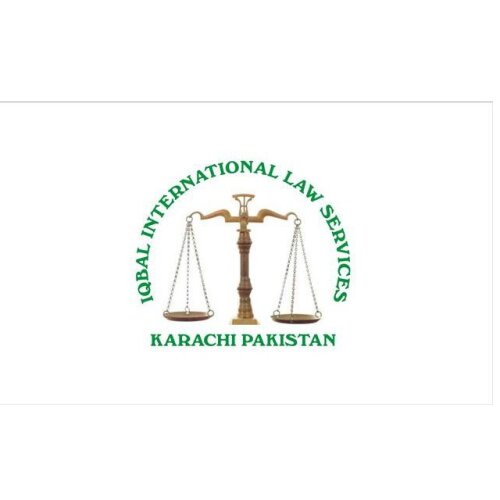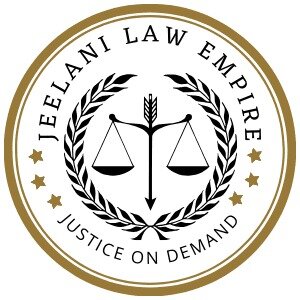Best Natural Resources Lawyers in Karachi
Share your needs with us, get contacted by law firms.
Free. Takes 2 min.
List of the best lawyers in Karachi, Pakistan

Bharucha & Co. (Advocates & Intellectual Property Attorneys-Pakistan)
15 minutes Free ConsultationAbout Natural Resources Law in Karachi, Pakistan
Natural Resources Law in Karachi, Pakistan encompasses the regulations and governance relating to the exploitation, conservation, management, and sustainability of natural resources including land, water, minerals, and forests. Karachi, being a major urban and economic hub, faces unique challenges in managing these resources efficiently. The city is not only battling environmental and regulatory issues but also striving to ensure equitable access and sustainable use. Thus, natural resources law aims to balance economic development with environmental protection, ensuring that the needs of current and future generations are met.
Why You May Need a Lawyer
There are various reasons why someone might need legal assistance in matters related to natural resources in Karachi. Individuals or businesses may require help navigating complex regulatory environments, securing permits and compliance with legislation, resolving disputes over land or resource extraction rights, or addressing environmental impact concerns. Furthermore, legal expertise may be necessary when dealing with issues such as water usage rights, biodiversity conservation, or when allegations of non-compliance with environmental laws arise.
Local Laws Overview
The legal landscape for natural resources in Karachi involves several key laws and regulations. The primary legislation includes the Pakistan Environmental Protection Act 1997, which provides the basic regulatory framework for pollution control and environmental management. Additionally, the Mines and Minerals Act governs mineral extraction activities, while the Forest Act regulates forestry activities to prevent deforestation and promote sustainability. These laws, along with numerous regulations enforced by local government bodies, form a complex regulatory environment that stakeholders must navigate. Understanding these regulations is critical for compliance and sustainable management of resources.
Frequently Asked Questions
What is the primary regulatory authority for natural resources in Karachi?
The Ministry of Climate Change and the Sindh Environmental Protection Agency (SEPA) are primary regulatory bodies overseeing natural resource management in Karachi.
How can I obtain a mining license?
To obtain a mining license, you must apply to the relevant government department, demonstrating compliance with the Mines and Minerals Act, environmental regulations, and local zoning laws.
What are the requirements for land use and zoning in Karachi?
Land use and zoning are governed by local development authorities, such as the Karachi Development Authority (KDA), ensuring that land use complies with urban planning and environmental regulations.
What steps should be taken in case of an environmental compliance violation?
If you face an environmental compliance violation, it is important to consult a legal expert immediately and work closely with regulatory authorities to address any issues and avoid further penalties.
Are there specific laws for water usage in Karachi?
Yes, water usage is regulated by laws and policies that address sustainable use and distribution, overseen by the Provincial Irrigation Departments and local water boards.
Do indigenous communities have special rights concerning natural resources?
Indigenous communities may have certain rights concerning access and usage of natural resources, based on customary laws and government initiatives aimed at protecting traditional lifestyles.
How does one address disputes over natural resource usage?
Disputes over natural resource usage can be addressed through negotiation, arbitration, or legal proceedings, often with the guidance of a lawyer specialized in natural resources law.
What are the penalties for violating natural resource laws?
Penalties for violating natural resource laws can range from fines and suspension of operations to imprisonment, depending on the severity and nature of the violation.
Can natural resource laws impact small businesses?
Yes, natural resource laws can significantly impact small businesses, especially those in industries related to extraction, agriculture, and manufacturing, making compliance a critical aspect.
Is environmental impact assessment required for new projects in Karachi?
Yes, an environmental impact assessment is typically required for new projects to ensure they do not harmfully affect the environment, with the process governed by SEPA.
Additional Resources
Consider reaching out to the following resources for more information and support regarding natural resources in Karachi:
- The Sindh Environmental Protection Agency (SEPA)
- The Ministry of Climate Change
- Local NGOs focused on environmental protection and sustainable development
- Legal aid organizations that deal with environmental law
Next Steps
If you need legal assistance in matters related to natural resources in Karachi, start by consulting with a lawyer who specializes in environmental or natural resource law. This expert can help you navigate the regulatory framework, obtain necessary permits, and represent you in any disputes. Conduct research or contact a local bar association to find qualified legal professionals. Ensure that you prepare pertinent documents, evidence, or communications related to your case before your consultation, for efficient and effective legal guidance.
Lawzana helps you find the best lawyers and law firms in Karachi through a curated and pre-screened list of qualified legal professionals. Our platform offers rankings and detailed profiles of attorneys and law firms, allowing you to compare based on practice areas, including Natural Resources, experience, and client feedback.
Each profile includes a description of the firm's areas of practice, client reviews, team members and partners, year of establishment, spoken languages, office locations, contact information, social media presence, and any published articles or resources. Most firms on our platform speak English and are experienced in both local and international legal matters.
Get a quote from top-rated law firms in Karachi, Pakistan — quickly, securely, and without unnecessary hassle.
Disclaimer:
The information provided on this page is for general informational purposes only and does not constitute legal advice. While we strive to ensure the accuracy and relevance of the content, legal information may change over time, and interpretations of the law can vary. You should always consult with a qualified legal professional for advice specific to your situation.
We disclaim all liability for actions taken or not taken based on the content of this page. If you believe any information is incorrect or outdated, please contact us, and we will review and update it where appropriate.
















